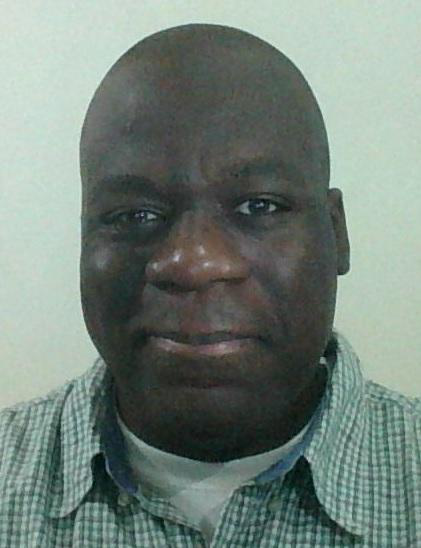What types of old school money advice did you learn long ago and yet blindly follow to this day? I always liked, “a penny saved is a penny earned.” Yet in this economy, who can save money?
Sometimes, the old school money advice we learned long ago becomes moot, outdated, or even counterproductive to our current needs.
We are living in a new era of socio-political and economic history.
It’s time to know when the old rules just don’t apply anymore when conducting your personal finance in the 21st century.
Old School Money Advice (A Disclaimer)
Please keep in mind that there is no one-size-fits-all kind of financial advice.
The following examples of outdated old school money advice are just examples. They may apply to you or not relative to your own personal circumstances.
The point is to not follow financial advice blindly or take it for granted. Or, to follow old school money advice just for its own sake.
Personal circumstances always change. Conduct your personal finances according to your current financial status and the financial market, and not how you wished things were otherwise.
Pay Off Your Mortgage Early
Old school money advice 101 says that you should pay all of your bills off on-time and in full. It doesn’t hurts paying off some bills or debts as early as possible either.
So, why not pay off your mortgage as early as possible?
This advice may have made sound financial sense from the 1970s until the 2000s. For example, in 1981, the 30-year fixed interest rate was almost 17% (no, that is NOT a typo.)
Mortgage interest rates didn’t start falling below the 5% margin until the start of the 2000s.
As of September 21, 2020, the interest rate for a 30-year fixed mortgage was 3.01%. The interest rate for a 15-year fixed mortgage was just 2.48%.
Understand, I am not suggesting that you don’t pay your mortgage every month.
Paying off your mortgage as early as possible is good advice if you can afford to do so responsibly.
However, most Americans are mired in unmanageable debt-cycles and are living precariously check-to-check.
The typical American household owes over $90,500 in debts.
Trying to pay off your mortgage early like you have a 17% interest rate may wreck the rest of your finances.
Additionally, it could eat up all of your available cash.
The interest you save from paying your mortgage off early could be better used now if you have multiple debts.
Here are some examples.
Credit Card Debt
Most credit card interest rates start at 16%. Some credit card interest rates could be as high as 29.99% depending on your creditworthiness.
Auto Loan
Most auto loan rates range from 4% to just under 5% but could be much higher relative to your own financial circumstances.
Student Loan Debt
The interest rate for college graduates starts at 4.30%. If your parents cosigned for your student loan, the interest rate could start at 5.30%.
Emergency Fund Sacrifice
Over 40% of American households couldn’t produce $400 if a financial emergency occurred.
Many financial experts believe that you should have an emergency fund with at least $2,500 to $15,000.
Paying off your mortgage as quickly as possible may not be good old school money advice if it sacrifices an emergency fund.
Now let me stress again, I am not suggesting that you stop paying your mortgage.
It’s just that trying to pay it off early may not be the best old school money advice now. Especially since mortgage interest rates are now relatively lower.
While mortgage interest rates may be relatively low, monthly mortgage payments can eat up a bulk of your budget.
If you’re drowning in debt, or getting out of it, financially straining yourself to pay off the mortgage early may be self-defeating.
And it may not be prudent to divert money from other outstanding debts with higher interest rates.
Cancelling Credit Cards Once They’re Paid Off
This is some old school money advice that makes sense.
After you have paid off all of your credit card debt, you should just cancel the accounts and cut up the card.
Right?
No.
Canceling your credit cards could be the most traumatic thing you can do to your personal finance records and credit history.
For one thing, you could unwittingly erase large segments of your credit history.
Think about it. Your credit history is a calculated averaging and total history of your credit card use. Imagine cancelling the first credit card you ever owned after a decade.
If you used it often, your use of it on your credit history would be deleted. Your credit score would lower as a result.
Also, you would look like an extreme financial risk if you tried to apply for another credit card.
Additionally, credit utilization ratio is vital metric used to determine your FICO credit score. This is a calculation of your credit card balance against your available credit line.
If you have 4 credit cards and close 2, your credit utilization rate increases. That lowers your credit scores and makes you look like a financial risk.
Keep your credit card accounts open and use them sparingly, even if you have paid them off. Do it for the sake of your credit history and your credit score.
Hoarding Cash in Your House
Hiding money under your mattress or in a home safe was good old school money advice a century ago.
After the great depression, there were runs on banks. The gold standard was abolished, so people couldn’t convert gold into money, or vice-versa, at a local bank.
There was too much uncertainty in the world for people to trust banks.
It isn’t the early 20th century anymore.
Until you see news anchors lighting their hair on fire and declaring mass bank closings, you’re better off opening a bank account.
Believe it or not, a quarter of Americans don’t trust banks with their money.
Over 25% of Americans don’t have a bank account. They use payday loans or pawn shops to balance their finances.
Many hide all of their money at home.
Most checking account interest rates range from 0.10% to 0.25%. If you deposit a predetermined threshold, many bank eliminate maintenance fees.
Money market accounts offer better interest rates, but you may need to deposit $1,000 to avoid maintenance fees.
The point is that you are better off with your money in a bank generating some interest.
Also, don’t bury your money in the backyard like you see in the movies.
Money can get moldy and become worthless.
Save $1 Million For Retirement
Have ever heard that you need at least $1 million for retirement? It was never good or helpful old school advice.
That outdated metric was probably created in the 1980s in an economic era mindset that no longer applies.
You must account for inflation and the ever-increasing cost of living standards when you consider retirement.
Retirement is a budgeting lifestyle for post-career elderly people. It is a journey, not a goal. A retirement fund must be exactingly calculated according to your cost of living needs.
You can’t retire on a one-size-fits-all metric.
If you live in a costly, large metropolitan city, you may actually need $3 million to retire on your own terms.
Consider that the average retirement age is 63. If you live to be 65, you have a 50% chance of living another 20 years.
If you don’t save enough money, you could outlive your retirement fund and need to start working in your 70s!
A $1 million retirement might last 23 years if you retire to Mississippi.
Meanwhile, $1 million would only last a decade in Manhattan, New York City.
If you retired to a developing country, then a million dollars might last 30-years or more if strategically budgeted.
The amount of your retirement fund is a customized and unique number. Calculate it strategically according to your own circumstances.
Forget Old School Money Advice – Reassess Your Personal Finances Often
Following old school money advice blindly could backfire on you.
The reality of economics today probably negates whatever outdated financial advice you learned long ago.
Keep a budget and reassess it often.
Also, consult a financial adviser if needed.
Don’t take the state of your finances for granted based on old advice which may no longer apply.
Read More
STOCKS YOU CAN INVEST IN FOR UNDER $10
IS IT BETTER TO FILE BANKRUPTCY OR DO DEBT CONSOLIDATION?
4 ITEMS THAT ARE NOT WORTH YOUR CASH
CARD CRACKING FRAUD MAKES YOU AN UNWITTING CRIMINAL

Allen Francis was an academic advisor, librarian, and college adjunct for many years with no money, no financial literacy, and no responsibility when he had money. To him, the phrase “personal finance,” contains the power that anyone has to grow their own wealth. Allen is an advocate of best personal financial practices including focusing on your needs instead of your wants, asking for help when you need it, saving and investing in your own small business.
